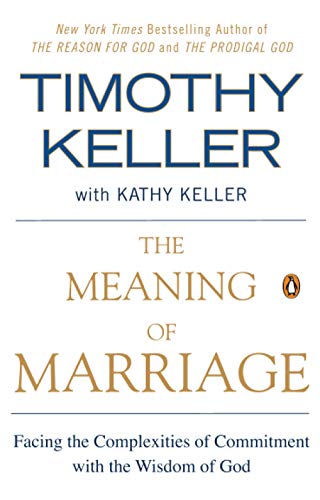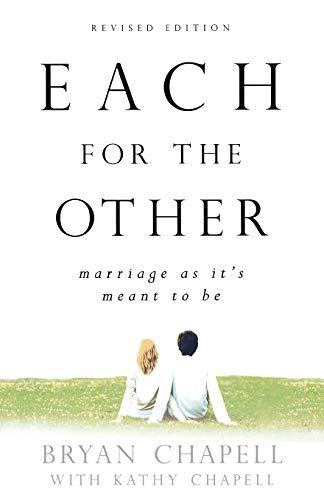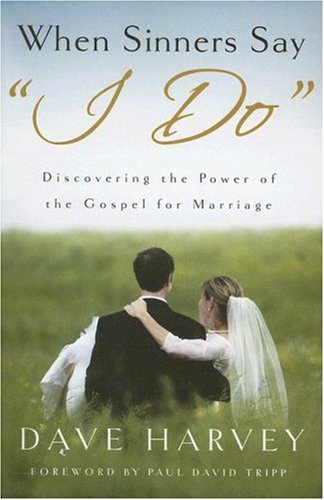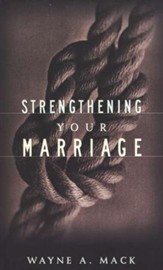Quotes about Marriage-Divorce
If marriage were of human origin, then human beings would have a right to set it aside. But since God instituted marriage, only He has the right to do so. He has told us that marriage will not be dispensed with until the life to come. Nor can marriage be regulated according to human whims. Marriage as an institution (which includes individual marriages, of course) is subject to the rules and regulations set down by God. If He had said nothing more about marriage after establishing it, we might have proceeded to draw up such rules on our own. But He did not leave us in the dark; God has revealed His will about marriage in the pages of the Bible. Individuals may marry, be divorced and be remarried only if, when and how He says they may without sinning.
Marriage, Divorce, and Remarriage in the Bible, Zondervan Publishing House, 1980, p. 4. Get this book!
It is altogether true that God hates divorce. But He neither hates all divorces in the same way nor hates every aspect of divorce. He hates what occasions every divorce – even the one that He gave to sinful Israel. He hates the results that often flow to children and to injured parties of a divorce (yet even that did not stop Him from willing divorce in Ezra 10:44, 11). And He hates divorces wrongly obtained on grounds that He has not sanctioned. But that leaves some things about divorce that He does not hate. He certainly does not condemn or hate divorce proceedings per se – i.e., as a process. Nor does He hate divorce when it is obtained according to the principles and regulations laid down in the Scriptures and which He followed in His dealings with unfaithful Israel.
Marriage, Divorce, and Remarriage in the Bible, Zondervan Publishing House, 1980, p. 23-24. Get this book!
Even though all divorces are the result of sin, not all divorces are sinful.
Marriage, Divorce, and Remarriage in the Bible, Zondervan Publishing House, 1980, p. 30. Get this book!
Instead of trying to find loopholes in God’s commandment or trying to convince ourselves that our spouse is not a Christian or is at least not behaving as one and therefore divorceable, we ought to be shouting the holiness of marriage from the housetops. It is better to endure much personal unhappiness than to treat as expendable the solemn vows of the wedding service.
Feelings change. You can’t promise to have a feeling. So if love is a feeling, the marriage vow makes no sense at all. But the vow does make sense because love is not a feeling. What is it, then? Love is a commitment of the will to the true good of another person. Of course, people who love each other usually do have strong feelings too, but you can have those feelings without having love. Love, let me repeat, is a commitment of the will to the true good of another person.
Copied from How to Stay Christian in College by J. Budziszewski copyright 2004, p.98. Used by permission of NavPress (Think Books) – www.navpress.com. All rights reserved. Get this book!
I am convinced that if a strict view on divorce and remarriage were taught in our churches, there would be fewer divorces among believers. Marriage would be entered into with more caution, and marriage partners would seek to preserve that union at all cost.
Jesus emphasizes that marriage is a unique work of God. It is not simply a contractual relationship which can be ended at will, for what God has joined together cannot be ended lightly. Although a contract or covenant is involved, marriage is a state of being, not just of belonging. That thought is contained in the word “wedding” which refers to this biblical idea of being indissolubly “wedded” to each other. Marriage is intended as a bond for life, and Jesus’ appeal to (the original creation of marriage) provides us with a high view of marriage, a vivid contrast to liberal teaching then and now.
Nothing is a cause for divorce save fornication. It does not matter how difficult it may be, it does not matter what the stress or the strain, or whatever can be said about the incompatibility of temperament. Nothing is to dissolve this indissoluble bond save this one thing… It is this question of the “one flesh” again; and the person who is guilty of adultery has broken the bond and has become united to another. The link has gone, the one flesh no longer obtains, and therefore divorce is legitimate. Let me emphasize again, it is not a commandment. But it is a ground for divorce, and a man who finds himself in that position is entitled to divorce his wife, and the wife is entitled to divorce the husband.
Studies in the Sermon on the Mount, 1959, p. 259-260, Used by permission from Elizabeth Catherwood (daughter).
It is clear that divorce is like a person cutting off an arm or leg because he has a splinter in it. Instead of dealing with whatever trouble arises between a husband and wife, divorce tries to solve the problem by destroying the union. On a deeper level, divorce destroys a union that God Himself has made. That is why Jesus said unequivocally, “What therefore God has joined together, let no man separate” (Matt. 19:6). The union of marriage is one which God, as its Creator, never desires to be broken. Divorce is a denial of His will and a destruction of His work.
The condition “except for unchastity” (Matt. 5:32) is not a way out that God provides, but is the grounds for divorce that He will recognize.
If God permitted divorce rather than death as a merciful concession to man’s sinfulness, why would He not also permit remarriage, since remarriage would be perfectly allowable under the original law of death for the adulterer? After all, the purpose of divorce was to show mercy to the guilty party, not to sentence the innocent party to a life of loneliness and misery.
Divorce was never commanded, even for adultery. Otherwise God would have given His notice of divorce to Israel and Judah long before He did. A legitimate bill of divorce was allowable for adultery, but it was never commanded or required. It was a last resort – to be used only when unrepentant immorality had exhausted the patience of the innocent spouse, and the guilty one would not be restored.
"Fornication" is unequivocally stated to be the only legitimate ground for which a man may put away his wife. The word used here is the more generic term for sexual uncleanness, namely fornication (porneia). This term may be used of all kinds of illicit sexual intercourse and may apply to such on the part of unmarried personas, in whose case the sin would not be in the specific sense of adultery. But though it is the generic word that is used here (cf. also Matt. 19:9), it is not to be supposed that the sense is perplexed thereby. What Jesus sets in the forefront is the sin of illicit sexual intercourse. It is, of course, implied that such on the part of a married woman is not only fornication but also adultery in the specific sense, for the simple reason that it constitutes sexual infidelity to her spouse. And this is the only case in which, according to Christ’s unambiguous assertion, a man may dismiss his wife without being involved in the sin which Jesus proceeds to characterize as making his wife to be an adulteress.
Marriage is not a mere civil thing, but is partly spiritual and Divine, and therefore God alone has the power to appoint the beginning, the continuance, and the end thereof.
An Exposition of the Sermon on the Mount, Chapter 13.
Get this book!
All history bears witness to the fact that when vital goodness is at a low ebb, the sacred institution of marriage is held in light esteem. It is both solemn and sad to behold an exemplification of the same in our own times; as the claims of God are less and less regarded by those of high and low estate alike; the holy obligations of wedlock are gradually whittled down and then increasingly disregarded. When a country, avowedly Christian, begins to tamper with the institution of marriage and make more elastic its divorce laws, it is a certain proof of its ethical decadence.
An Exposition of the Sermon on the Mount, Chapter 13.
Get this book!
According to the law, adultery is the only sufficient reason for divorce.
An Exposition of the Sermon on the Mount, Chapter 13.
Get this book!
In His excellent piece, “of Marriage after Divorce in Case of Adultery,” John Owen pointed out that to insist that divorce simply secures a legal separation but does not dissolve the marriage relation would bring in a state harmful to men. God has appointed marriage to be a remedy against incontinence (1 Cor. 7:2), but if innocent parties lawfully divorced may not marry again, then they are deprived of this remedy and debarred from this benefit. If the divorced person has not the gift of continency, it is the express will of God that he should marry for his relief; yet on the supposition of the objector he sins if he marries again, yea is guilty of the horrible crime of adultery. Is not this quite sufficient to expose the untenability of such and anomoly?
An Exposition of the Sermon on the Mount, Chapter 13.
Get this book!
When God stands as witness to the covenant promises of a marriage it becomes more than a merely human agreement. God is not a passive bystander at a wedding ceremony. In effect he says, I have seen this, I confirm it and I record it in heaven. And I bestow upon this covenant by My presence and My purpose the dignity of being an image of My own covenant with My wife, the church.
Let None be Faithless to the Wife of his Youth, Sermon, Nov. 22, 1987, www.DesiringGod.org, Used by Permission.
The mere mention of the word carries a huge weight of sorrow and loss and tragedy and disappointment and anger and regret and guilt. Few things are more painful than divorce. It cuts to the depths of personhood unlike any other relational gash. It is emotionally more heart-wrenching than the death of a spouse. Death is usually a clean pain. Divorce is usually unclean pain. In other words, the enormous loss of a spouse in death is compounded in divorce by the ugliness of sin and the moral outrage at being so wronged.
This Momentary Marriage – A Parable of Permanence, Desiring God Foundation, 2008, p. 158-159, www.DesiringGod.org.
What makes divorce and remarriage so horrific in God’s eyes is not merely that it involves covenant-breaking to the spouse, but that it involves misrepresenting Christ and His covenant. Christ will never leave His wife. Ever. There may be times of painful distance and tragic backsliding on our part. But Christ keeps His covenant forever. Marriage is a display of that! That is the ultimate thing we can say about it. It puts the glory of Christ’s covenant-keeping love on display.
This Momentary Marriage – A Parable of Permanence, Desiring God Foundation, 2008, p. 25, www.DesiringGod.org.
If the most ultimate meaning of marriage is to represent the unbreakable covenant-love between Christ and His church (Ephesians 5:22-33), then no human being has a right to break a marriage covenant. When the impossible day comes that Christ breaks His vow, “I am with you always, to the end of the age” (Matthew 28:20), then, on that day, a human being may break his marriage covenant. This explains why Jesus does not settle for the divorce provision of Deuteronomy 24:1-4 (Mark 10:3-9), but says, “What therefore God has joined together, let not man separate” (Mark 10:9). In other words, since God is the One who decisively makes every marriage, only God has the right to break a marriage. And He does it by death. Which is why the traditional and biblical marriage vows have one and only one limitation: “till death do us part,” or, “as long as we both shall live.”
What God Has Joined Together, Let Not Man Separate, Part 2, July 1, 2007. www.DesiringGod.org, Used by Permission.
Marriage is a human relationship ordained and instituted by God (Malachi 2:14-16). His original design was one man and one woman united by covenant and sexual union for life (Genesis 2:23-4). The relationship was a mystery in that it set forth symbolically in physical form the relationship between himself and his people (Eph. 5:21-33; Isaiah 54:5; Hosea 2:14-23; Ezekiel 16; Jeremiah 3:20).
Bethlehem Baptist Church, A Statement on Divorce and Remarriage in the Life of Bethlehem Baptist Church, May 2, 1989.
Divorce is painful. It is emotionally more wrenching than the death of a spouse. It is often long years in coming and long years in the settlement and in the adjustment. The upheaval of life is immeasurable. The sense of failure and guilt and fear torture the soul. Like the psalmist, night after night a spouse falls asleep with tears. Work performance is hindered. People draw near or withdraw with uncertain feelings. Loneliness can be overwhelming. A sense of devastated future can be all consuming. Courtroom controversy compounds the personal misery.
Bethlehem Baptist Church, A Statement on Divorce and Remarriage in the Life of Bethlehem Baptist Church, May 2, 1989, www.DesiringGod.org.
In all my 13 years as a professional marriage counselor, I’ve never seen an unbiblical divorce cause less pain and suffering than it would have taken to “fix” the marriage… When a Christian initiates an unbiblical divorce, it’s always because he’s hardened his heart against God… It’s his self-centeredness and discontentment that causes a man to forsake his wife and family, separate himself from them, seek his own desire, and look for greener pastures elsewhere.
Consequences of pursuing an unbiblical divorce:
1. You will be confirming to all your brothers and sisters in Christ that you have a hard heart.
2. You will bring shame to the name of Christ.
3. You will be subject to God’s discipline.
4. You will multiply your misery by the guilt and bitterness you will inevitably experience.
5. You will cause much hurt and potential harm to others.
Excerpted from: Divorce: Before You Say “I Don’t,” 2007, P&R, p. 6-9. Used by Permission
Unbiblical reasons to pursue a divorce:
1. “My feelings have changed. I’ve fallen out of love with her” (Pr. 28:26; Mt. 24:12; 1 Cor. 13:5-6; Rev. 2:1-7).
2. “That man has killed all the love I ever had for him” (Lev. 19:18; Mt. 5:43-48; 22:34-40; Gal. 5:14; Eph. 5:25; Tit. 2:3-5).
3. “It is not good for the children to have to live in a home with so much conflict, hatred, and disharmony” (Jer. 16:12; Lk. 12:1; Rom. 12:18; 14:19; 1 Cor. 7:12-16; Eph. 4:3; 6:4; 1 Thes. 5:13; 1 Tim. 4:12; Heb. 12:25).
4. “I’m tired of trying” (1 Sam. 1:24ff; Heb. 10:36; 12:1-11; Jas. 1:2-8).
5. “I have peace about it” (Jonah 1:5-6; Rom. 14:22-23; Col. 3:15).
6. He has lied to me repeatedly. I will never be able to trust him again” (Pr. 3:5-6; 20:6; Lk. 17:3; Ac. 15:36-39; Col. 4:10; 2 Tim. 4:11’ 1 Pet. 3:5-6).
7. I cannot continue to live in this constant state of confusion that this marriage keeps me in” (2 Cor. 4:8; 1 Cor. 10:13; Phil. 4:13).
8. I’ve lived with her for umpteen years and I know that she will never change” (Psm. 138:8; 1 Cor. 1:8; Eph. 3:20; Phil. 1:6; 2:13; 2 Tim. 1:12; Ju. 24).
9. My family and friends are all advising me to get out of this horrible marriage” (Pr. 11:14; 15:22, 24; 24:6; Rom. 14:22-23; 1 Cor. 15:33).
Excerpted from: Divorce: Before You Say “I Don’t,” 2007, P&R, p. 18-23. Used by Permission.
Comparing the harm of living with parents who are seriously at odds to the harm of breaking their family apart is, generally speaking, like comparing catching a cold to getting double pneumonia. The effects of one are far less severe than the effects of the other… As bad as this current situation is for your children, it would almost certainly be worse for them to have to endure the demise of their family – not to mention the terrible impact that your example of selfishness, hypocrisy, and rebellion would be likely to have on them
People “fall in love” because they want to. When you “fell in love” with your wife, you were not struck with some external force such as Cupid’s arrow. Neither were you dazzled by some external influence such as Love Potion #9. The romantic feelings you enjoyed, which you claim to have now lost, were of your own making. They were created in your own heart. They, like your other feelings, were largely the result of your thoughts and ways. You “fell in love” with your spouse as a result of what you did to, for, and with her and as a result of what you told yourself about her. You created those romantic feelings, and by God’s grace, you can make them come back.
The Bible never discusses this psychological fact of human unhappiness in marriage when it discusses the inviolability of marriage and when it forbids divorce. Christians in our day need to face this fact, for fact it is. To put it as bluntly as the Bible does, the Lord is as much as saying, I know you are unhappy but your unhappiness does not change your obligation to your marriage. I know you think your life would be much better if you were out of this marriage or could have another woman for your wife, but that does not in any way diminish your obligation to remain faithful to your wife… Listen, "The Lord knows our frame. He remembers that we are dust." He is full of a perfect sympathy for the trials and tribulations of human life. There can be no thought of His not caring for the pain caused to his children who find themselves in a loveless marriage. He wants us to be happy. But, he wants us to be holy even more! And, the fact is, there are a great many things that are very hard to do in the Christian life but which Christians must do, come wind, come weather. No one can read the Bible and conclude that the Lord would never ask his children to suffer for his sake, to make sacrifices for His sake, even punishingly difficult sacrifices.
Perhaps nothing is more tragic and heartbreaking than the divorce of a so-called Christian marriage. Literally, there is no excuse. Don’t both partners have the Holy Spirit that produces fruit like love and peace and gentleness and kindness and self-control? Don’t both partners want to submit to Jesus Christ as Lord of their lives? Don’t both partners have the Bible, their marriage manual, that specifically outlines what God expects and how they can have a fulfilling, joyful and God-honoring marriage? Don’t both partners have the church which can offer accountability and encouragement and counseling? Don’t both partners remember the promise, the covenant they made before God in good times and bad times to love each other to the end? Don’t both partners what to do all things for the glory of God?
Divorce Myths:1. When love has gone out a marriage, it is better to get divorced. 2. It is better for the children for the unhappy couple to divorce than to raise their children in the atmosphere of an unhappy marriage. 3. Divorce is the lesser of two evils. 4. You owe it to yourself. 5. Everyone’s entitled to one mistake. 6. God led me to this divorce.
In hard, cold reality, a person rarely seeks divorce for the well-being of the children. What is distressing about this myth is not so much the fallacy of it as its blatant hypocrisy. If people were really concerned for the well-being of their children, I would think they would move heaven and earth to transcend their false dilemma and move in the direction of responsible parenthood. With the use of this myth as a justification for divorce, humankind exposes its capacity for calling good evil and evil good. Here an act of selfishness is painted or portrayed as a noble act of self-sacrifice for the good of the children.
In every marriage that ends in disaster, some stupid decisions were made with respect to God’s regulations. If God’s regulations were followed scrupulously, not only would there be no divorces; there would be no unhappy marriages. To violate the regulations of God is not only an exercise in disobedience but also an exercise in foolishness. If you want a happy marriage, the most intelligent thing you can do is to submit to God’s regulations. They are designed to promote and protect your full happiness.
A married person does not live in isolation. He or she has made a promise, a pledge, a vow, to another person. Until that vow is fulfilled and the promise is kept, the individual is in debt to his marriage partner. That is what he owes. “You owe it to yourself” is not a valid excuse for breaking a marriage vow but a creed of selfishness.
In the case of adultery after marriage, it is lawful for the innocent party to sue out a divorce, and after the divorce to marry another, as if the offending party were dead.
Recommended Books



















